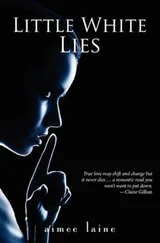The bell rings at the meeting house, Te Whai a Te Motu, calling the Ringatu faithful to gather together on this very special day. In the church calendar the first of June is the Sabbath of the Sabbath and the beginning of the Maori New Year, with the pre-dawn rising of Matariki, the bright stars of fruitfulness. On this happy day, each person contributes seeds to the mara tapu, the sacred garden, for out of the seed comes the new plant, symbolic of the renewal of God’s promise to all his people.
Paraiti urges Ataahua quickly through the village: most of the houses are drab weatherboard with tin roofs, but a few are brightly painted. Some of the local dogs bark at them, and Paraiti gives Tiaki a warning glance. ‘Don’t bark back, it’s Sunday.’ He gives her a sniffy look, then growls menacingly at the dogs so that they whine and back away. They know Tiaki from past visits to Ruatahuna: he never retreats. Indeed, it was for this quality that Paraiti chose him when a pig hunter, whom she treated for a shoulder torn apart by a boar, offered one of his newborn litter of pups as payment. She had the thought that a dog would provide extra protection for her so she agreed to the offer. Putting out her hand, she watched the pups scrambling to reach it, and saw the runt pushing his other bigger siblings away — and then he held her gaze and bit her finger, drawing blood.
‘Well,’ she said, ‘if you want the job that much, you have it.’
Ahead, Paraiti sees her cousin Horiana’s house; it is one of the brightly painted ones. She knows Horiana won’t mind if she ties the animals to her fence. ‘Don’t eat Horiana’s roses,’ she tells Kaihe. Even so, she is troubled to see that the roses are taking over the native vines in the garden.
Wrapping her scarf around her face, and taking with her a small sachet of seeds, Paraiti makes for the marae. Horses and buggies are tethered to the fence outside and, hello, a few motoka are parked there as well. She walks through the carved gateway, stands a moment before the meeting house, remembering the dead and paying homage to it, and then crosses the threshold of the porch to peer inside the whare.
The atmosphere inside is smoky and dark, but there’s no doubting that it is packed with locals. People are sitting up against the walls, prayer books in hands. Wirepa, the local poutikanga, pillar of authority, is leading the service. He is about the same age as Paraiti, and he gives a brief nod in her direction.
Paraiti unlaces her boots, takes them off and slips through the door of the meeting house.
‘Kororia ki to ingoa tapu,’ Wirepa intones. ‘And verily, an angel appeared to the prophet Te Kooti, and the angel was clothed in garments as white as snow, his hair like stars, and he wore a crown and a girdle like unto the setting sun and the rising thereof, and the angel’s fan was like the rainbow and his staff was a myriad hues. And the angel said to Te Kooti, “I will not forsake thee or my people either.” And so we prevail to this very day. Glory be to Thy holy name. Amine.’
Paraiti sees Horiana beckoning and making a place beside her. Stooping, she makes her way over to her cousin; some of the worshippers recognise her and smile or hold out their hands for her to clasp as she passes.
‘E noho, whanaunga,’ Horiana welcomes her. They kiss and hug as if they haven’t seen each other for a thousand years. ‘We’ll korero afterwards,’ Horiana whispers, opening her prayer book.
Paraiti gives a sign of apology to Wirepa for interrupting the service. She removes her scarf and hears a buzz as people who hadn’t seen her entering realise she has arrived — ‘Scarface … Te takuta … The doctor … Blightface.’ She smiles at familiar friends. She doesn’t mind that people call her Scarface or Blightface; they use the name as an identification, not to mock her.
She lets herself be absorbed into the meeting house. It is such an honour to be sitting within Te Whai a Te Motu, with its figurative paintings and beautiful kowhaiwhai rafter patterns. Here, in the bosom of this holy place, Paraiti joins in praising and giving thanks to God.
When the service is over, the people adjourn to the mara tapu outside, where Paraiti and others offer their seeds for the sowing. Wirepa intones a final karakia. Then there are people to be greeted and further korero to be had with the local elders.
‘You will set up your tent in the usual place?’ Wirepa asks.
‘Thank you, rangatira,’ Paraiti answers.

‘Time to get started,’ Paraiti says to Horiana, after the midday meal. She can already see that people are waiting to see her.
Nodding, Horiana yells to some young boys, ‘Go and get the takuta’s tent, eh?’ They run to Kaihe and unload the medicinal supplies; once the tent is up they arrange a makeshift stretcher inside and then hold out their hands for some liquorice they have seen when unpacking the supplies.
Horiana is Paraiti’s assistant in Ruatahuna and has been taking bookings. ‘Lots of people want to see you,’ she tells her, as she shouts to the boys again, this time ordering them to bring some chairs from the meeting house for the old people so that they don’t have to stand. ‘The usual problems,’ Horiana continues. ‘Nothing too difficult so far.’ Horiana is very proud of the status that Paraiti’s visits give her. ‘I could have handled most of the cases myself,’ she adds.
Always bossy, Horiana sits outside the tent deciding who should enter and depart. Inside, the patients and their wives, husbands or partners sit on the chairs or lie on the stretcher: a slab of wood covered with a finely woven flax mat. Stacked against one of the walls of the tent are the rongoa and the herbal pharmacy that Paraiti draws on for her work. Not all have been brought by her; some have been stockpiled by Horiana for her arrival. On a small table are the surgical implements of her trade. Unlike some of her brother and sister healers, Paraiti shuns Pakeha utensils and keeps to traditional ones: wooden sticks and scrapers, sharp-edged shells and obsidian flakes for cutting, thorns for opening up abscesses, and stones to heat before placing on the body.
Major bone setting requires steam treatment, so Paraiti organises times at a makeshift spa. Her father had been renowned for his skill with massage, a special knowledge instilled in him by his mother, and he passed on to his daughter the techniques to heal and knit broken bones. He also taught her therapeutic massage for the elderly; he himself loved nothing better than to submit himself to Paraiti’s strong kneading and stroking of his body to keep his circulation going.
‘Daughter,’ he would sigh, ‘you have such goodness in your hands.’
The clinic opens and most patients are easily diagnosed — those with coughs or colds are treated with houhere and tawa; children with asthma or bronchitis are given kumarahou. Boils are lanced and the ripe cores squeezed out before Paraiti returns the patient to Horiana to apply a strong and tensile spider-web poultice.
Paraiti gives a short greeting to patients returning for check-ups, and notes whether a broken leg has set well, or a burn is in need of further treatment with harakeke and kauri gum. Sprained joints are treated with weka oil or kowhai juice; with Horiana holding the patient, Paraiti eases the joint back in place, then instructs Horiana how to bind it.
A young man with a deep cut on his forehead comes in. ‘How did you come by that?’ Paraiti asks.
‘His wife threw a knife at him when he came home drunk from the hotel,’ Horiana answers, rolling her eyes with contempt.
‘Perhaps it is her I should be treating,’ Paraiti says lightly as she applies rimu gum to the wound.
Читать дальше













